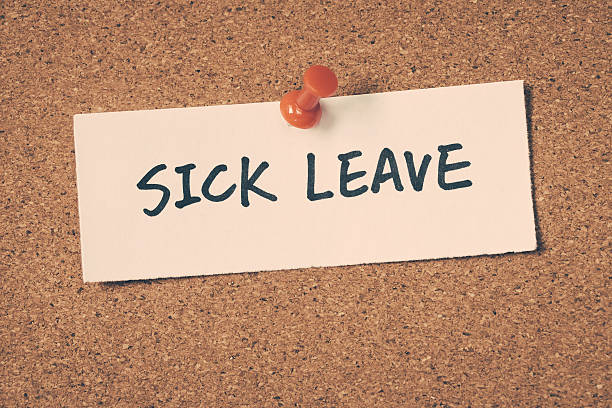Working despite being on sick leave - is it worth it?
Published

This article includes American figures because we cannot find any reference values in the DACH region.

Those : istockphoto.com
Admittedly, not everyone has a choice. Depending on your situation, you may not have the luxury of calling in sick - that's a whole other issue that the government will have to address (soon). According to the Bureau of Labor Statistics have only 63% of workers in service jobs are entitled to paid sick leave, compared to more than 90% of workers in management positions. According to the Economic Policy Institute, the lost wages from missing three days of work can be worth a month's worth of groceries or monthly utility bills.
For those of you who are fortunate enough to have sick days, it may help to put yourself in the shoes of your (healthy) colleagues.
Would you want to be within sneezing distance of someone who has a cold? (According to the New England Journal of Medicine, sneezing distance is between 3 and 26 feet). Would you like to listen to an orchestra of disgusting noises that sick people regularly conduct? (Sneeze, cough, blow your nose, sniffle, repeat.) Are there several large containers of hand sanitizer in your office? (Probably not.)
Why do people work when they are sick?

Those : latestly.com
There are a number of reasons why people go to work armed with a bag of cough drops and a box of tissues. According to a survey by Robert Half of more than These are the main reasons for 2,800 employees , why people go to work when they are sick:
- You have too much to do (54%)
- They don’t want to take a sick day (40%)
- Pressure from the employer (34%)
- Work colleagues come to work sick (25%)
About 57% of employees sometimes go to work sick, and 33% always go to work sick, according to the same survey. There are currently no federal laws requiring employers to provide paid sick leave to their employees, and sick leave laws vary from state to state. This makes it very tempting to find a job that offers paid sick leave.
If you take sick leave, it doesn't mean that your boss or colleagues will see it as a sign of weakness.
"I've had colleagues go to work to prove something to themselves (and perhaps to show their boss how sick they really were), only to be told by the boss, 'Go home and recover,'" Salemi says. "While there are some bosses and colleagues who don't believe in working while sick, the reality is that as an employee you have the right to set your own boundaries and know what you are capable of.
Money can also be an issue. For some, not showing up for work can mean not getting paid. About a third of people surveyed by the NSF said they cannot afford to be sick and miss work, which is because only 10 states and Washington D.C. mandate paid sick leave.
What should you do if you are sick?

Those : learning.shine.com
The last place you want to be when you're sick is your desk. But the decision is yours. Be smart.
"People's systems are all different, whether you're coming down with a cold or recovering from the flu," Salemi says. "However, if you wake up and literally can't get out of bed, your head is stuffy and you can't focus your eyes, that's a sign that you should definitely stay home.
But you definitely shouldn't let it get to that point.
Taking care of yourself also means coming to terms with the fact that you are too sick to go to the office and do your work as usual. So when you tell your boss, keep it simple. Nobody wants to know what bad condition you are in. Set up a short sick note via email to inform your colleagues of your absence.
"Your boss's response should be understanding and compassionate," says Salemi, "especially if you can take a day off that saves you an entire week of being unavailable.
If you feel sick at work, the CDC recommends separating yourself from the other people in your office and — surprise surprise — going home until your fever has subsided without fever-reducing medication for at least 24 hours or your symptoms have improved (at least four to five days after flu symptoms begin).








